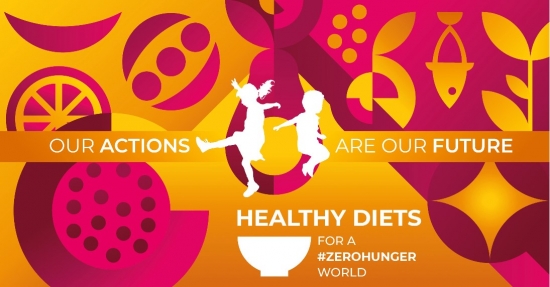In 2014, the FAO/WHO Second International Conference on Nutrition (ICN2) acknowledged that: “current food systems are being increasingly challenged to provide adequate, safe, diversified and nutrient rich food for all that contribute to healthy diets due to, inter alia, constraints posed by resource scarcity and environmental degradation, as well as by unsustainable production and consumption patterns”. To address these challenges, the UN Decade of Action on Nutrition 2016 – 2025 puts a specific focus on the transformation of food systems to promote healthy diets that are sustainably produced and improve nutrition to achieve the global nutrition and diet-related NCD targets in line with commitments of ICN2 and the Sustainable Development Goals (SDGs). Considering the detrimental environmental impact of current food systems, and the concerns raised about their sustainability, there is an urgent need to promote diets that are healthy and have low environmental impacts. These diets also need to be socio-culturally acceptable and economically accessible for all.
Acknowledging the existence of diverging views on the concepts of sustainable diets and healthy diets, countries have requested guidance from the Food and Agriculture Organization of the United Nations (FAO) and the World Health Organization (WHO) on what constitutes sustainable healthy diets. The two organisations jointly held an international expert consultation on Sustainable and Healthy Diets from 1 to 3 July 2019 at FAO headquarters in Rome, Italy, to address these issues. The Consultation agreed on guiding principles for what constitutes “Sustainable Healthy Diets”. This comes at a time when the debate around the sustainability of diets is high on the agenda of governments, international organisations, civil society organisations, the private sector and academia.



